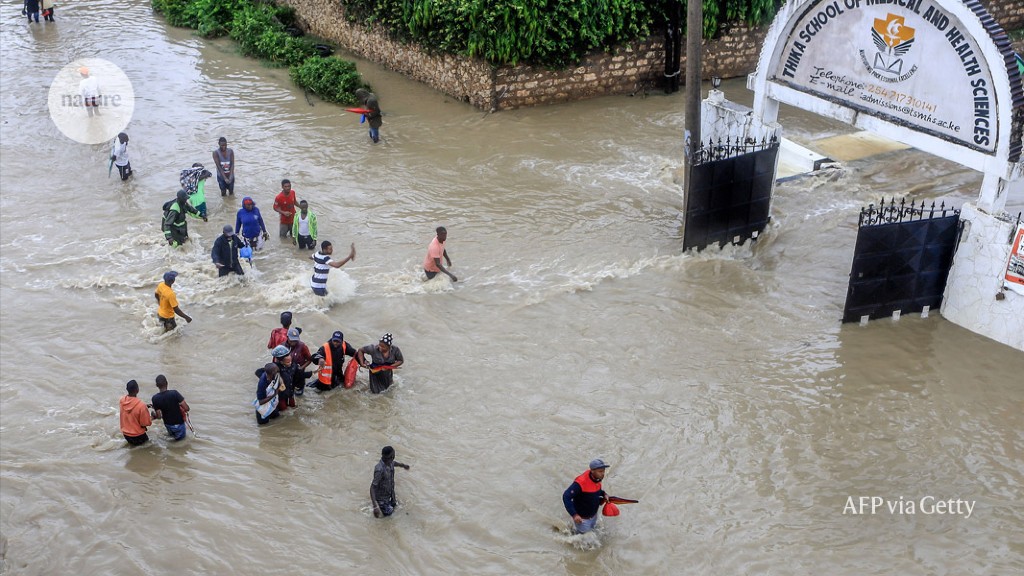First cash pledged for countries devastated by climate change: COP28 starts with historic decision

Draft resolution on a “loss and damage fund” has attracted more than $400 million, but climate vulnerable countries say more cash is needed

Countries in Eastern Africa experienced severe flooding last month, including Kenya (Mombasa, pictured), as well as Ethiopia and Somalia.Credit: AFP via Getty
A fund that will provide essential finance to countries most impacted by climate change attracted more than $400 million in pledges after it was announced today at the start of the United Nations COP28 climate meeting in Dubai.
The draft resolution on a ‘loss and damage’ fund marks an historic moment in the world’s strategy on climate change. It is the culmination of a 30-year effort by low-and-middle income countries to be compensated by high income countries for their losses and damages from the effects of climate change.
It is also a major achievement for the conference hosts, the United Arab Emirates (UAE), which has been criticized by climate campaigners in the run up to the COP – the conference president Sultan Ahmed Al-Jaber, chairs the Abu Dhabi National Oil Company as well as Masdar, a state-owned renewable energy company.
Of 197 countries represented at COP28, the UAE and Germany have pledged $100m each to the fund; other European Union member states have together pledged $125m, followed by the United Kingdom, which pledged around $50m. The United States pledged $17.5m and Japan $10m. The fund will be administered from the World Bank in Washington DC, until a more permanent home can be found.
Researchers and campaigners welcomed the move, while recognizing that much more is needed and that pledges are not the same as money in the bank.
“It remains to be seen how much money rich countries, developed countries and the polluting countries will be willing to put into that fund,” says Romain Weikmans, a researcher at Université Libre de Bruxelles, Belgium who studies climate finance.
Countries calling for the fund, especially those highly vulnerable to climate change, are expecting it to eventually reach a target of at least $100 billion per year. Tom Mitchell, executive director of the International Institute for Environment and Development, an environment research think tank in London, says “the total amounts [so far] are really, really very modest. Some of the least developed countries see the US commitment as “a slap in the face”, he adds.
For a long time, the US opposed such a fund. It also pushed for it to be hosted by the World Bank, says Mitchell. The bank has been given interim responsibility in part because climate vulnerable countries say the bank has relatively little experience in climate finance and mostly disburses loans.
The principle of a loss and damage fund – which is closer to compensation, rather than aid – was accepted by countries at the end of COP27 in Egypt last year. Scientists played a leading role, Weikmans says. “The number of scientific publications on this issue has been significantly growing over the past few years,” he says. This growing body of research has meant that loss and damage has been more widely recognized in reports of the Intergovernmental Panel on Climate Change.
Further details, such as how much will be grants versus loans, and who will be eligible to receive funding have not been announced.
That it took just one year from agreeing the fund to pledging donations is significant, Weikmans adds. “The climate negotiations process is extremely slow. “It’s a big success,” he says.
The key test now, Mitchell adds, is whether the fund can get the money to the places it is needed, fast. “It’s a really important signal,” he says of the agreement, “now the hard work starts with actually getting it to work and getting the money to the frontline of climate impacts,” he says.
doi: https://doi.org/10.1038/d41586-023-03814-9
This story originally appeared on: Nature - Author:Katharine Sanderson


















